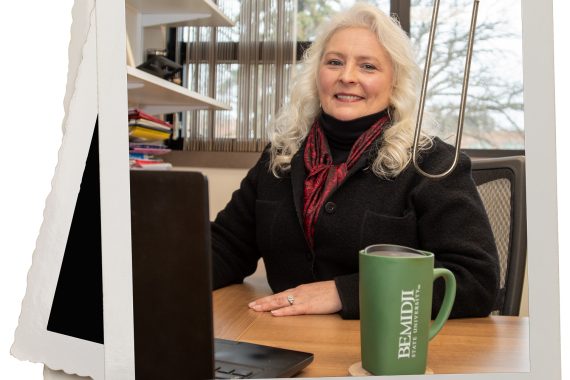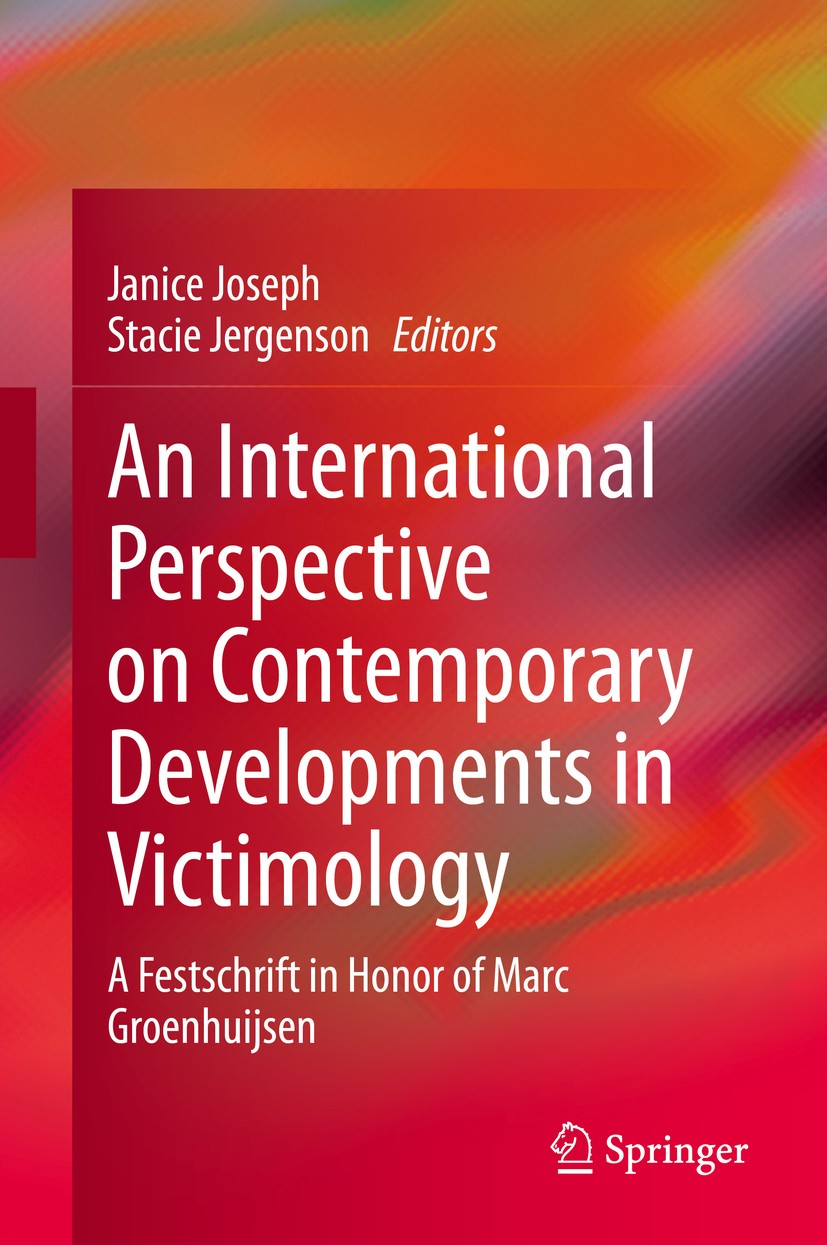
Dr. Stacie Jergenson Follows a Non-traditional Path to a Non-traditional View on Crime
After a 15-year career working in Minnesota’s state court system, Dr. Stacie Jergenson realized that higher education could not only open doors for her future, but also allow her to foster change in our criminal justice system.
With wide-ranging expertise and connections to a global community of experts, Jergenson joined Bemidji State University’s faculty in 2014 and founded its victimology emphasis two years later. The program gives BSU students an unusual opportunity to focus their studies on the victims of crime in a region where law enforcement and public service organizations are increasingly focusing their attention on this emerging field.
Jergenson’s path from court reporter and assistant to a district court judge to university professor and globally recognized expert in her field unfolded over many years. After graduating from high school, she earned a legal secretary diploma in a nine-month program and set off to work in Minnesota’s court system before making the decision to continue her education.
“While I was working, I decided as a non-traditional student to go back to school,” she said. “So I completed my associate’s degree first and thought, ‘I can do this.’ Then I kept going.”
Her journey eventually led her to a bachelor’s degree in sociology and a master’s degree in public safety, both from St. Cloud State University. A series of international experiences while at St. Cloud State changed the course of her career and helped illuminate the path that eventually led her to BSU. Jergenson gave herself an incentive: with each new degree, she promised herself a trip abroad. One such trip took her to the World Society of Victimology’s annual conference in Croatia, where she took a post-graduate course on victim services.
“In Croatia, I was exposed to restorative justice and I started seeing how justice systems, victim service agencies and social service agencies function in different places,” she said. “Our criminal justice system focuses so heavily on offenders and retributive justice, and I thought, ‘this is what is missing.'”
That experience, which she described as “mind-blowing,” was transformative or her future. From that point forward, she began to focus her professional trajectory on victimology as part of a holistic view of justice. She defended her doctoral dissertation at the University of North Dakota in August 2014 and joined BSU’s criminal justice faculty the same day.
Bemidji State’s victimology emphasis area, housed in its Department of Sociology and Communication Studies, is one of only two programs in Minnesota that allows bachelor’s degree-level criminal justice majors to focus their studies on the victims of crime. Most programs offer only individual courses as part of a broader criminal justice degree.
“This program is about breaking down silos,” she said. “Forensic victimology helps students understand the neurobiology of trauma. Then we pull in victim services. Then from a law enforcement perspective, how do they handle interviews with victims?”
She says that as part of an emerging field, victimology students always have more to learn. “The things our students are studying in this program are extremely relevant to what future police officers, victim services providers or social services workers will be seeing when they graduate from BSU.”
Her work to start the program garnered attention in the Bemidji community, and she was recruited to join a collaboration of local law enforcement and social services organizations to create a sex trafficking task force.
“It was a twist of fate, falling into that group of folks right here in our community,” she said. “We were all learning together, how to explore, unite, collaborate and identify sex trafficking in our community — and what we should do about it. How could we work together, share information and build together?”
That small initial group has steadily expanded, and Jergenson says the group now includes around 50 members of various agencies and organizations in the North Woods region.
This work has led Jergenson to her current research focus on missing and murdered Indigenous people. During her 2022-23 sabbatical, she presented at a pair of conferences in Europe — including the World Society of Victimology conference that changed the course of her own career.
She acknowledges that while her experiences and her expertise can position her as an ally, she is still an “outsider.” She says her research draws as heavily as possible on literature written by Indigenous scholars or that is accepted by Indigenous communities.
“These are not my stories,” Jergenson said, making it imperative for her to approach her work with openness, awareness and curiosity: “What is the research? What data do we have, and what are we missing? This issue is invisible in many societies. It’s not talked about.”
Her focus on developing her own scholarship, which in turn enriches the experience she is able to provide to BSU’s students, is simply a continuation of her own educational journey — from first-generation student to world-renowned scholar.
“I’m a farm kid. I’m first generation, so I share a similar background with many of our students,” Jergenson said. “That gives me an appreciation for what they’re going through — the struggles and the challenges, but also the triumphs and the possibilities.”
“The things out students are studying in this program are extremely relevant to what future police officers. victim services providers or social services workers will be seeing whn they graduate from BSU”
Dr. Stacie Jergenson

In 2020, Jergenson edited An International Perspective on Contemporary Developments in Victimology with Janice Joseph, distinguished professor of criminal justice at Stockton University and current president of the World Society of Victimology. The book offers a global perspective on victimology from dozens of contributors.
Jergenson also authored a chapter in the book on applied victimology, which explores gaps between academic studies and field practices of professional victimologists. The chapter includes a suggested curriculum for a graduate program in applied victimology.
